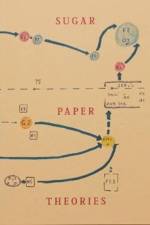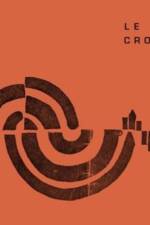av Leah Gordon
521
'Before Carnival, you never sleep, always dreaming of bringing pleasure, innovation and creation. '- Fanel Saint-Helere & Frantz Denoujou (Flanbo Mardi Gras troupe)Leagues away from the sequinned, sanitised, corporate-sponsored carnivals found elsewhere in the Americas, the Madigra troupes of the Haitian port town of Jacmel enact and subvert myth, legends and the nation's own histories, their improvisational costumes and surreal narratives a Vodou-charged blend of folk memory, political satire and personal revelation. Here the Zèl Maturin, satin-clad devils in papier-mâché masks, hinged wooden wings clapping on their backs, do battle against Sen Michèl Arkanj and his army of pastors; further on the Chaloska in their cows'-tooth-adorned masks transform the feared early twentieth-century police chief Charles Oscar Étienne into a metaphor for the corrupting nature of absolute power. At the crossroads the horned Lanse Kòd, their skin shining blacker than black with a mixture of cane syrup and charcoal, perform press-ups before running amok through the crowds. Meanwhile a trouser-clad donkey, led by the leaf-skirted Atibruno troupe, speaks into a mobile phone and eats fried plantain, to show the world that the peasants are as good as anyone, that all donkeys are important. Here too are lone, idiosyncratic characters: Geralda, the single mother of a starving child, the mermaid-in-disguise Madanm Lasirèn, and Bounda pa Bounda, who plays out a Vodou vision revealed by a treetop-dwelling spirit. Leah Gordon has been photographing Jacmel Carnival and recording oral histories with its participants since 1995. Her photographs in 'Kanaval' are stripped of kinesis and exuberance. She uses a sixty-year-old Rolleicord medium-format twin-lens-reflex camera, and shoots onto black and white negative film. The camera is mechanical, and once the film is loaded the shutter has to be physically cocked and the exposure set manually. She always asks permission and pays the participants for the chance to photograph them. A consensual reciprocity between the photographer and the sitter arises which leaves behind the commotion of the street and enters the more tranquil territory of a portrait studio. The time and space created allows for some of the historical narratives of the Madigra to seep through. Leah Gordon (born Ellesmere Port, UK) is an artist, curator, and writer. Her work explores the intervolved and intersectional histories of the Caribbean plantation system, the Trans-Atlantic Slave Trade, the Enclosure Acts and the creation of the British working-class. Her film and photographic work has been exhibited internationally including the Museum of Contemporary Art, Sydney; the Dak'art Biennale and the National Portrait Gallery, UK. She is the co-director of the Ghetto Biennale in Port-au-Prince, Haiti; was a curator for the Haitian Pavilion at the 54th Venice Biennale; was the co-curator of 'Kafou: Haiti, History & Art' at Nottingham Contemporary, UK; and was co-curator of 'PÒTOPRENS: The Urban Artists of Port-au-Prince' at Pioneer Works, NYC in 2018 and MOCA, Miami in 2019. In 2022 she will be exhibiting and curating at documenta fifteen, Kassel, and is directing a feature-length documentary on Jacmel Carnival for BBC's Arena. Here Press is delighted to republish Gordon's Kanaval, eleven years after its first publication, in a revised and expanded second edition which includes many new photographs and oral histories.




